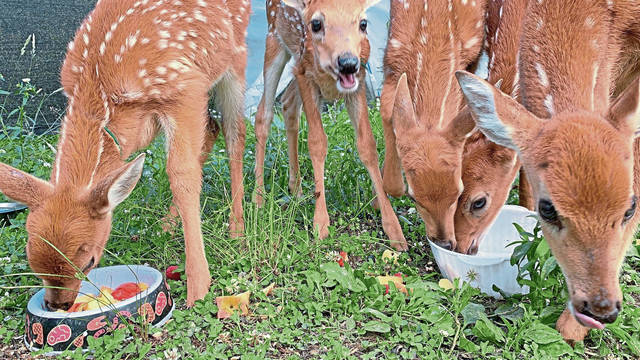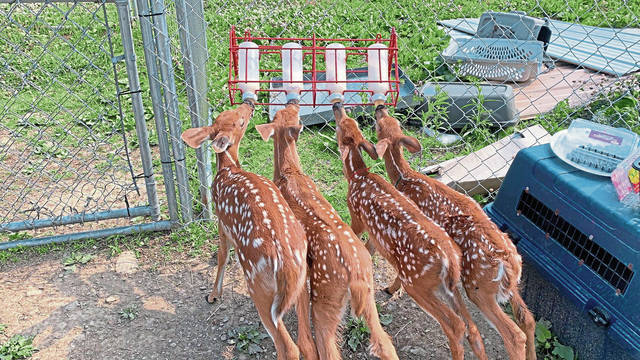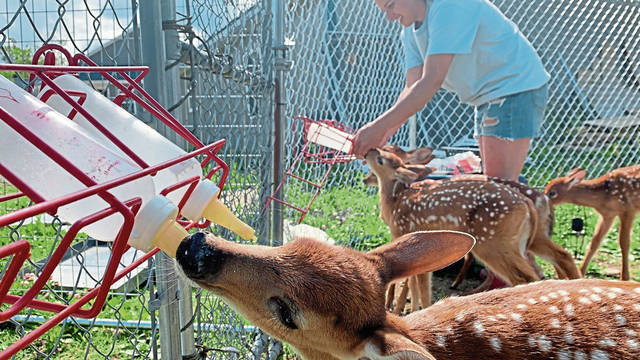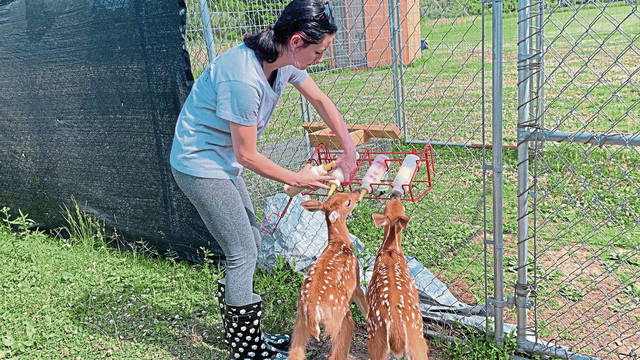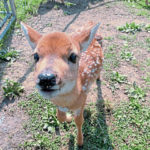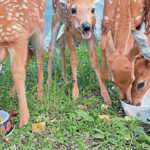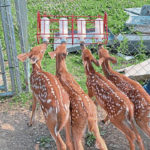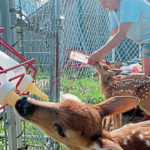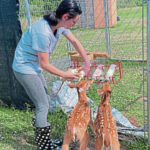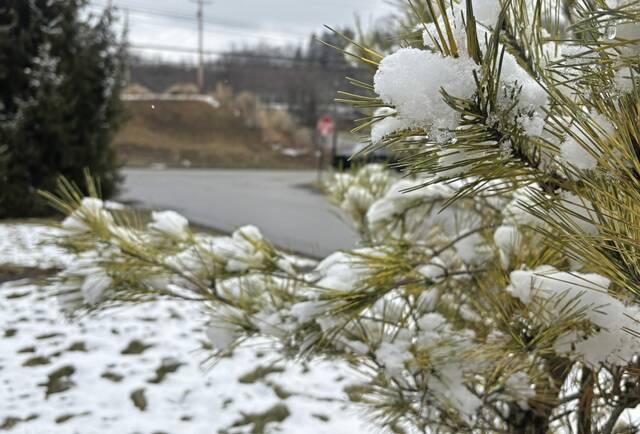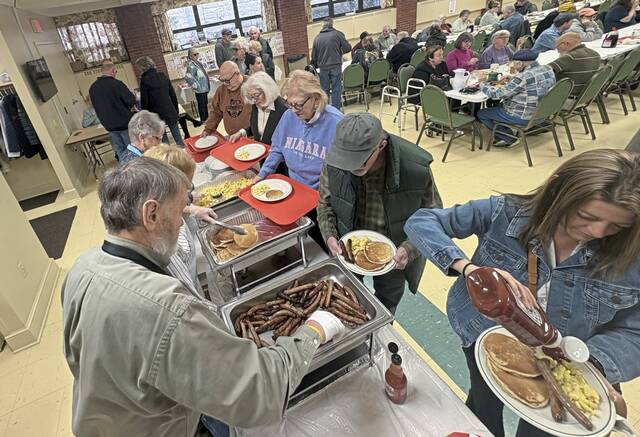The eight whitetail fawns Morgan Barron and Ella Lawrence have been taking care of know when it’s time to eat.
They’ll run to the door of their Mt. Pleasant Township enclosure or make noises. But that’s the only time the small herd wants to be around people.
“Which is good — that means they are releasable,” Barron said.
But until the fawns are ready to become residents of the forest later this summer, Barron and Lawrence, both volunteers with Wildlife Works, will feed them three times a day. Barron built the enclosure this year as a satellite location for the Youngwood-based nonprofit.
Wildlife Works rehabilitates distressed mammals, songbirds and birds of prey but previously didn’t have the ability to accept fawns. The nonprofit is raising money to help with their care and to expand their enclosure.
Barron, a veterinary technician and licensed rehabilitator, said she finished the enclosure in March and, two days later, her first fawn arrived. The animals currently are eating a mixture of formula and produce until they are weened off of milk.
It costs about $370 to feed each deer during rehab, Barron said.
Many fawns have ended up there after being found by someone who incorrectly believed the animal needed help, she said. Mothers typically leave fawns for hours in a safe spot while they forage for food. A fawn that appears healthy and isn’t crying should not be disturbed.
“If you see a baby fawn, mom is probably around somewhere,” Barron said. “The chances of you seeing the mom come back to the fawn are slim.”
The Pennsylvania Game Commission said the best thing to do is leave young wildlife alone to reunite with their mother.
Wildlife Works is raising money through T-shirt sales to benefit the fawns, all of which are younger than 4 months. Office manager Monica Leuthold said the organization is a little more than halfway to its goal of selling 400 shirts. The campaign will be open until July 6.
Their enclosure has shelter and space where the fawns can sit in tall grass or underneath trees. Barron said she plans to double its size to include a nearby pond.
She and Lawrence feed the fawns items they might find in the wild, such as apples and berries. The animals have grown into different personalities, from shy to sassy, Barron said.
Watching them grow has been rewarding and satisfying for both women, but the fawns still act like normal deer.
“That’s the goal. That’s what we like,” Barron said.
The main criteria for release — they have to be eating natural items and not approaching people — are still a month or so off. Barron plans to release them in August.



